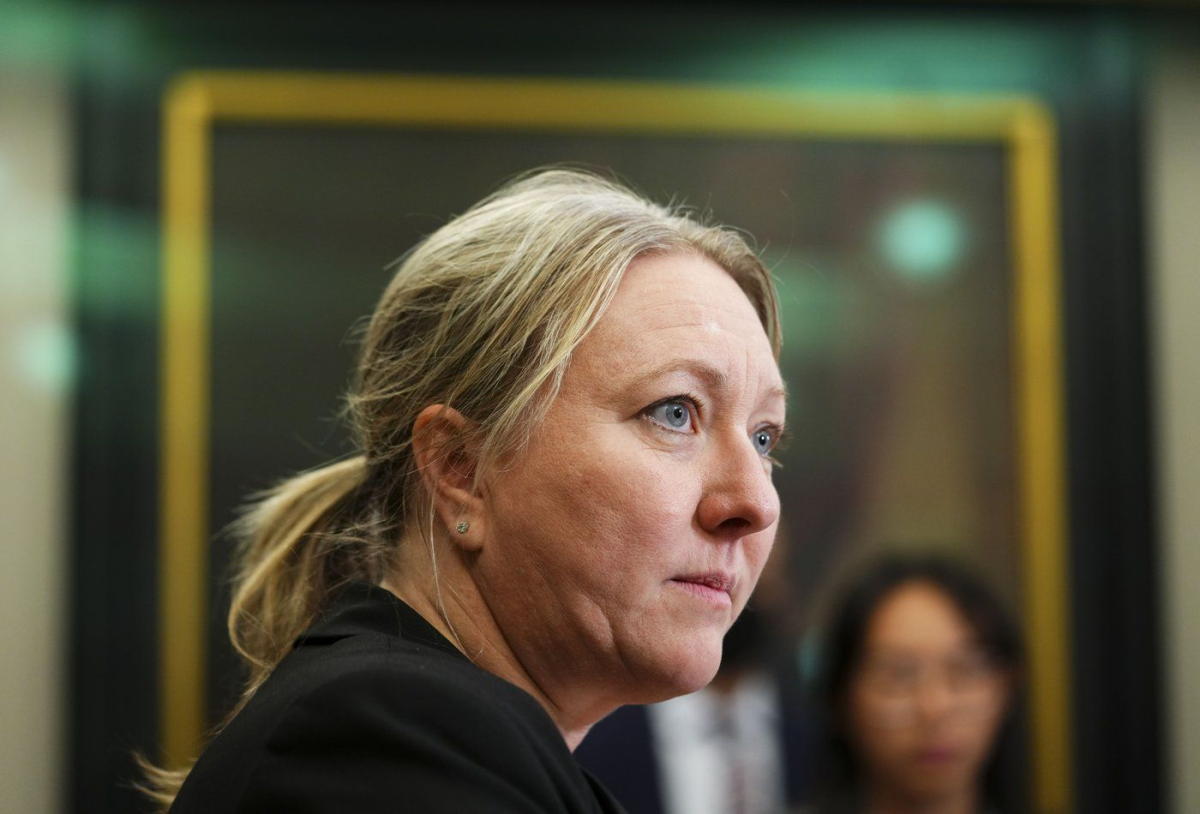Support strong Canadian climate journalism for 2025
Major suppliers to the federal government will soon have to start disclosing their carbon footprint to keep doing business with Ottawa.
The new procurement directive will take effect April 1, requiring that any contracts worth $25 million or more only go to companies that agree to publish their annual greenhouse gas emissions and show how they plan to reduce them.
But Treasury Board Minister Mona Fortier did not have an answer when asked whether the policy does anything to make sure those plans succeed.
"The big message we have today is that we're championing sustainable procurement," Fortier said at an event on the sidelines of a climate and economic sustainability conference in Toronto.
"We're bringing forward directives to make sure that businesses disclose their carbon emissions and how they will do so."
Fortier said her mandate includes improving the federal government's procurement process, which she said is not just about getting more value for money, but also about getting more sustainability.
Canada's commitment under the Paris climate agreement is to cut emissions by 2030 so they are only 55 to 60 per cent of what they were in 2005. Canada wants to be net-zero by 2050, meaning any emissions remaining are captured by technology or nature.
"We cannot fight this fight alone," she said. "We need to work collaboratively to save our planet."
The policy will require companies who want big contracts with Ottawa to join the federal Net Zero Challenge "or an equivalent initiative."
The challenge programs requires disclosure of existing emissions, targets to get to net-zero emissions by 2050, interim targets along the way and annual reporting on progress.
It does not require meeting any targets to remain part of the challenge.
The federal government buys more than $22 billion in goods and services annually and in 2022 more than 45,000 different companies were awarded at least one contract worth more than $10,000.
However, the government's contracts database lists just 127 individual contracts worth more than $25 million last year.
Keith Stewart, an energy strategist at Greenpeace Canada, said "on its own this announcement will not make anyone do anything they weren't already prepared to do."
But he said if the government goes further to define what is meant by a "credible climate plan" and makes having one a requirement for getting government contracts, then it "could get interesting."
Without that, he said it's not likely to make much difference.
"These are baby steps at a time when we really need to sprint," said Stewart.
"If the government wants to go the extra mile and require the companies that do business with it to meet the UN criteria on credible climate plans, then we will see serious action."
Exactly how each contract will include emissions reporting will be unique to individual procurements, but will derive from two options.
The government can include participation in the net-zero challenge or an equivalent program as part of the requirements for anyone bidding on a specific contract.
Alternatively, it can award extra points in the evaluation of contract bids to companies that show they are part of such a program.
This report by The Canadian Press was first published Feb. 28, 2023.




Comments